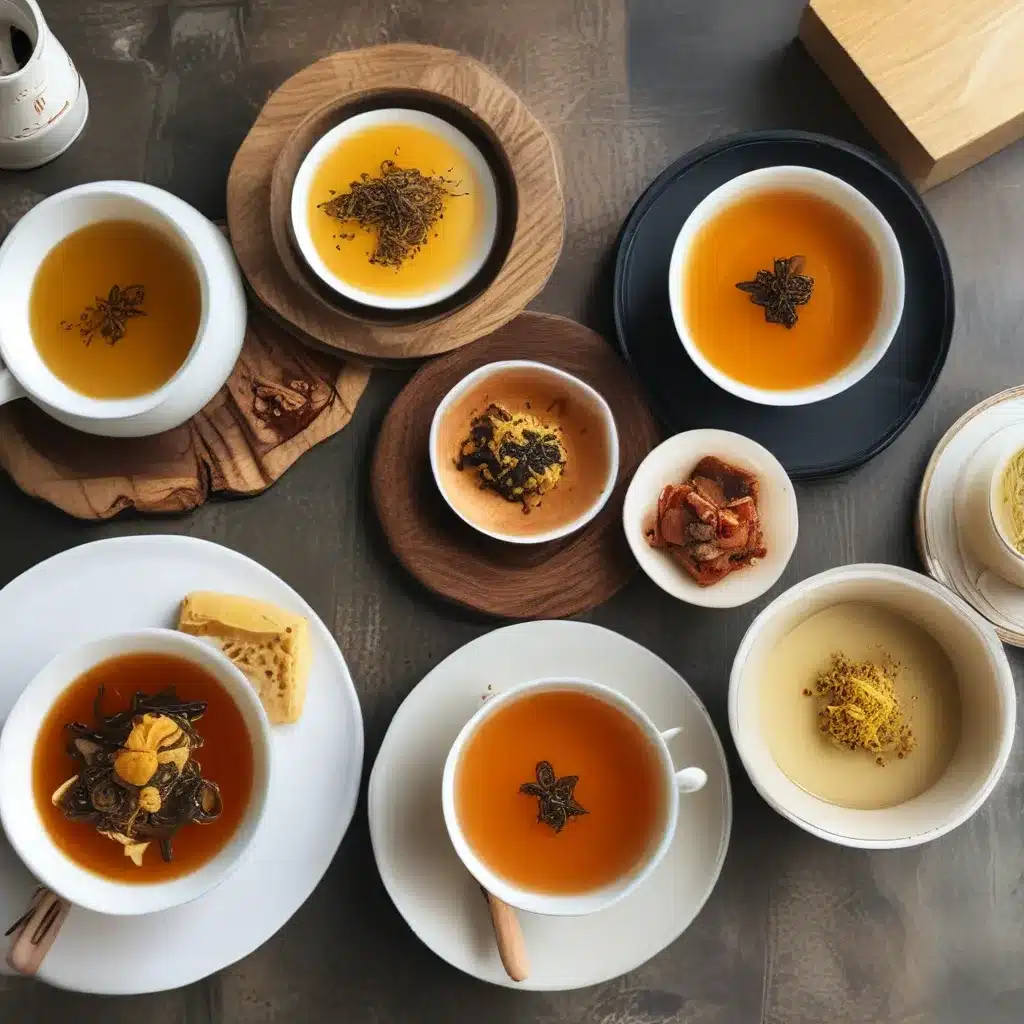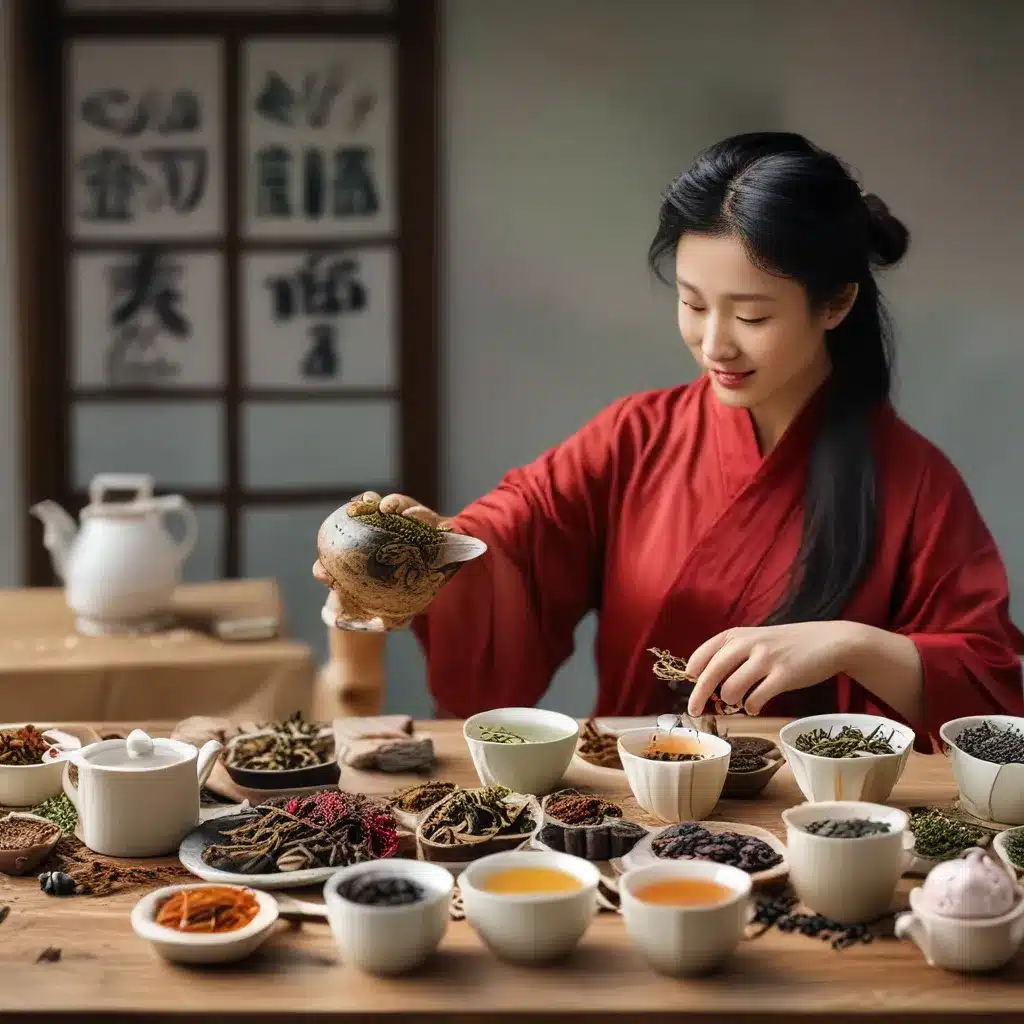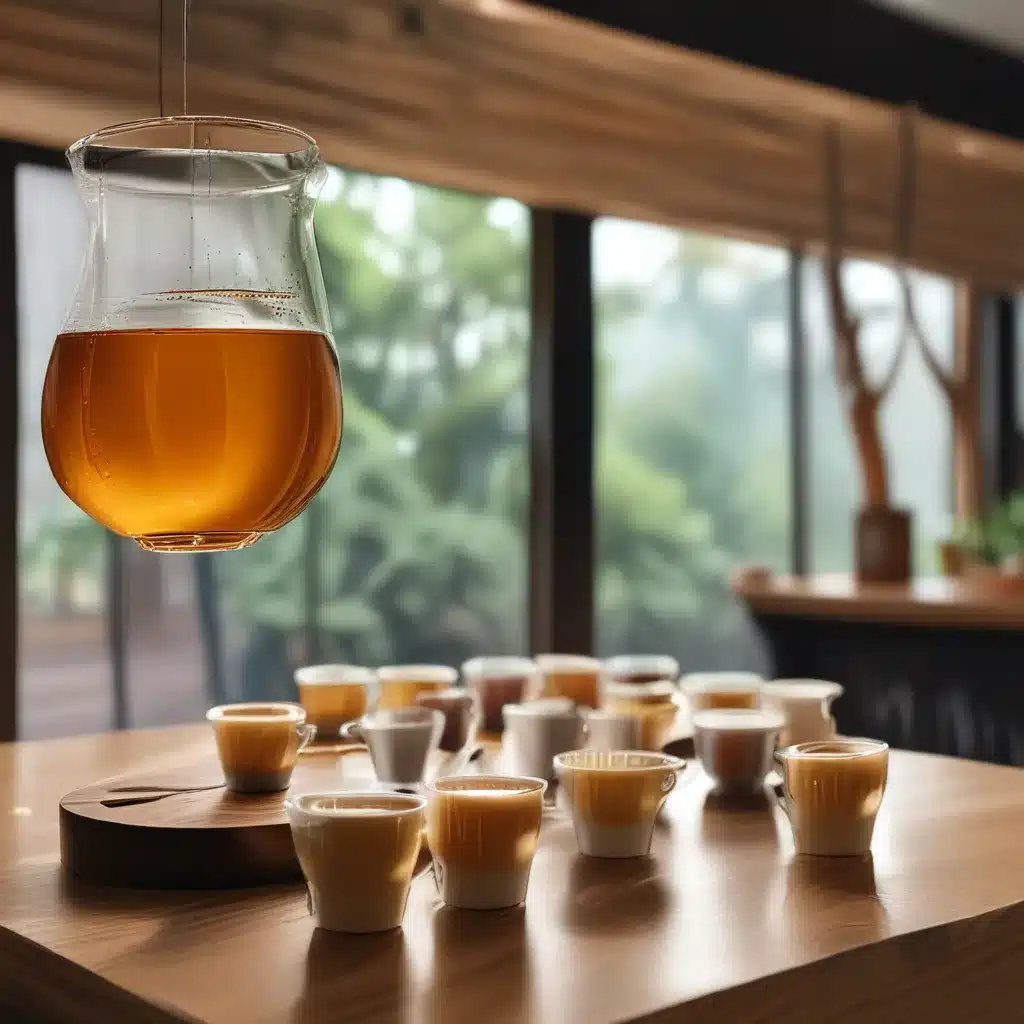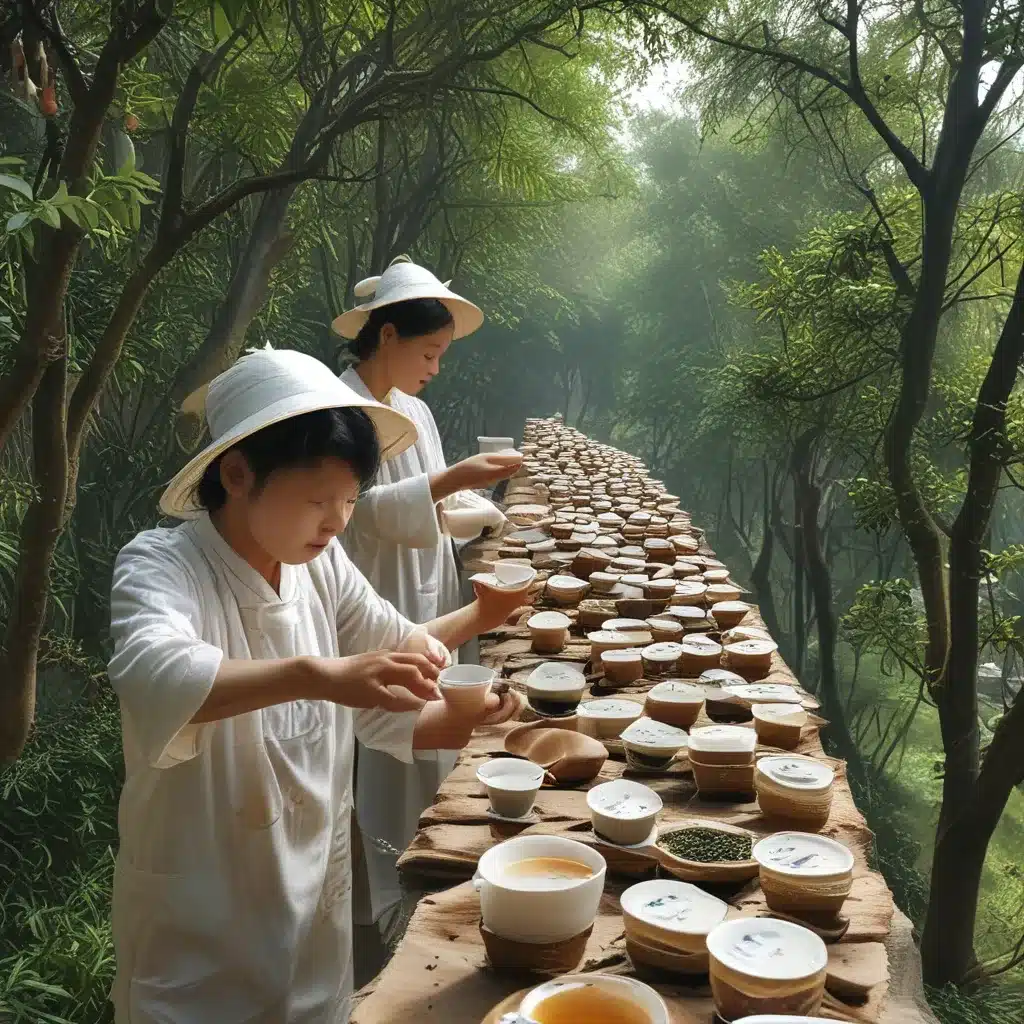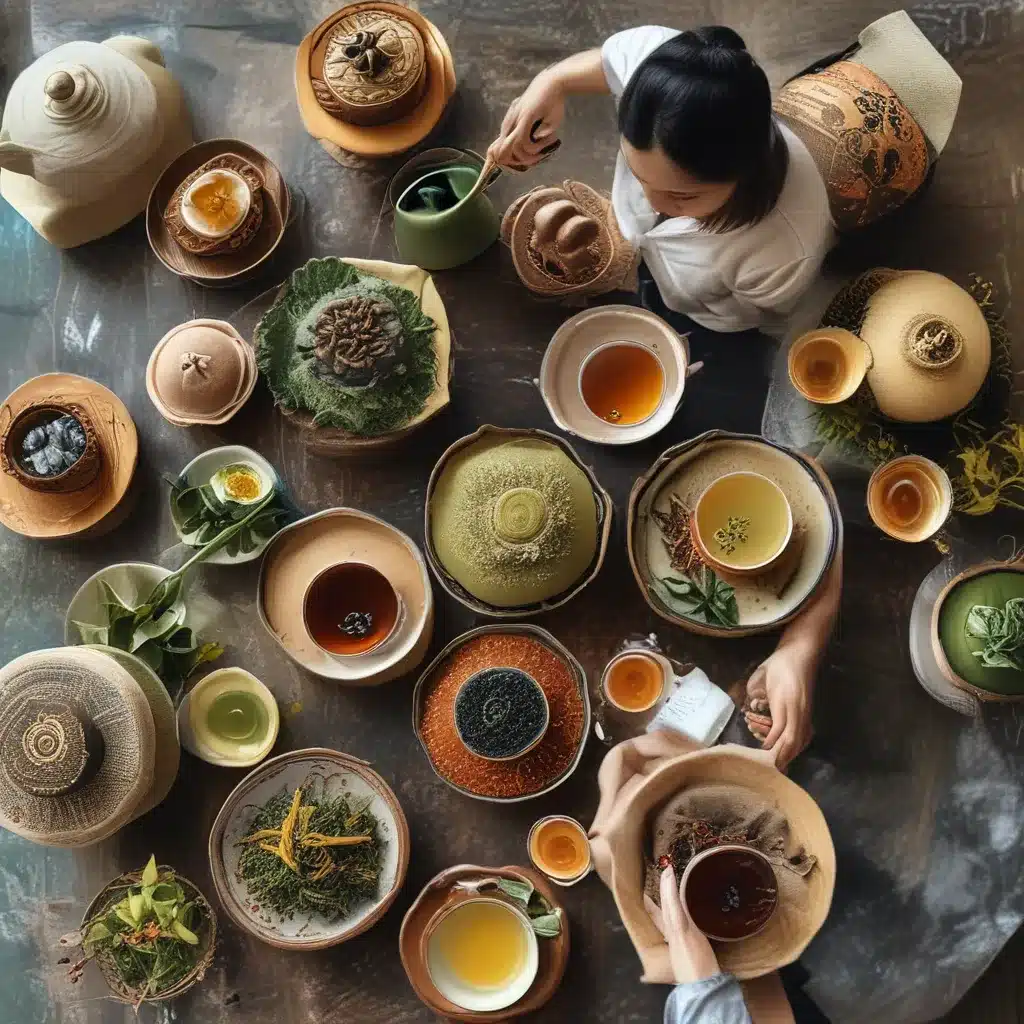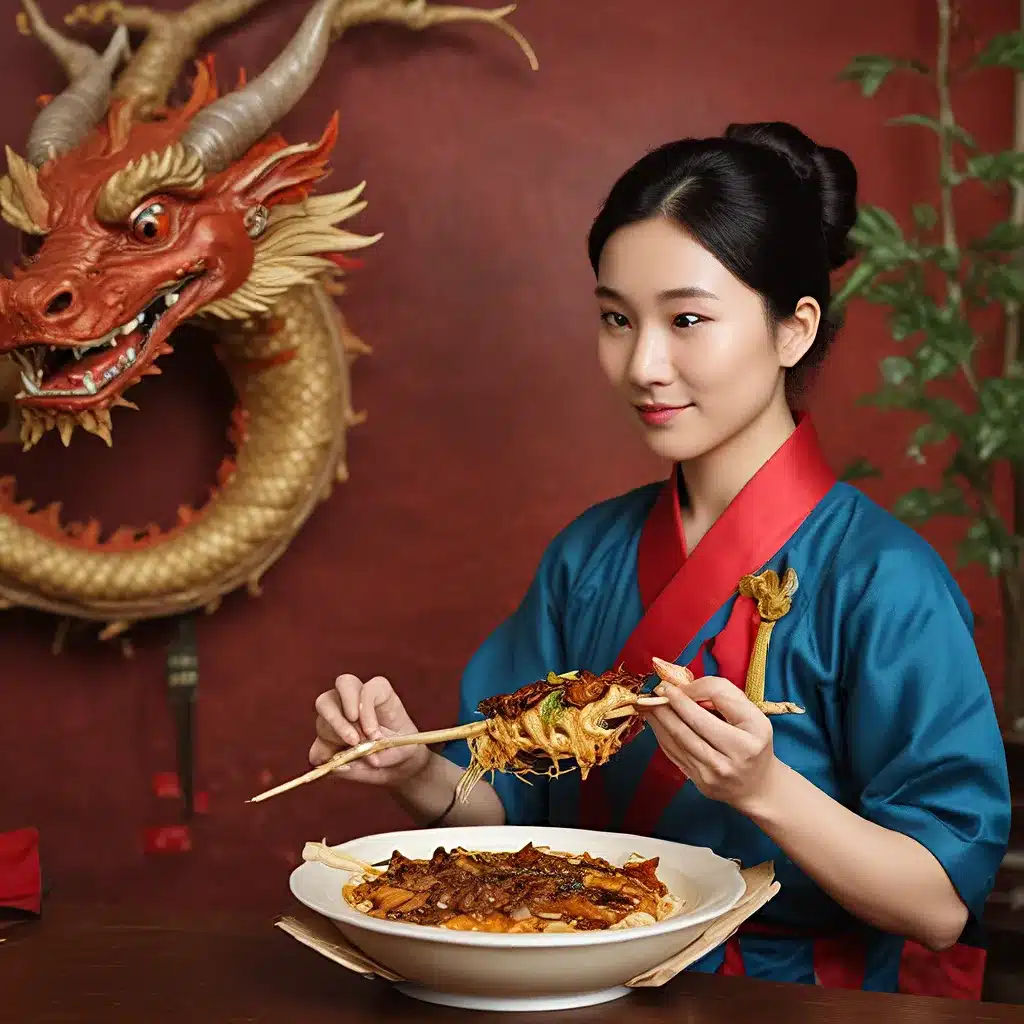
A Sichuan Awakening
As I step into the airy, sun-drenched dining room of One Dragon Restaurant, the heavenly scents of fragrant Sichuan peppercorns and vibrant chili oil immediately transport me to the bustling streets of Chengdu. I’m greeted warmly by the owner, Mei, who proudly shares the story behind her family’s commitment to sustainable Sichuan cuisine.
“When I first moved to Shanghai from the Sichuan province, I was dismayed to see how many of the Sichuan restaurants here were sacrificing authenticity and quality for the sake of profit,” Mei explains, her eyes sparkling with passion. “I knew I had to do things differently – to honor the rich culinary heritage of my homeland while also embracing a more eco-friendly approach.”
And that’s precisely what Mei has achieved with One Dragon. As I delve into the menu, I’m struck by the depth of flavor and the vibrant colors of each dish – a testament to the restaurant’s dedication to using the freshest, locally-sourced ingredients.
Sourcing Sichuan Sustainably
Mei’s journey to sustainable Sichuan cuisine began with a deep dive into the regional ingredients that define the bold, pungent flavors of this beloved cuisine. “Sichuan peppercorns, chili oils, and fermented pastes are the heart and soul of Sichuan cooking,” she tells me, “and we make sure to source them from small, family-run producers who share our commitment to sustainability.”
One such producer is the Huang family, who have been cultivating organic Sichuan peppercorns in the lush, mountainous regions of Leshan for generations. “Their peppercorns are harvested by hand, and they use traditional drying and processing methods that minimize environmental impact,” Mei explains. “The result is a superior product that packs a real punch of that signature numbing, citrusy flavor.”
Similarly, Mei has developed close relationships with small-scale chili oil and fermented paste makers, ensuring that these essential Sichuan ingredients are crafted using time-honored techniques and the freshest, most ethically-sourced components. “It’s all about traceability and transparency,” she says. “I want our customers to know the stories behind the food they’re eating.”
This commitment to sustainable sourcing extends to the restaurant’s meat and produce as well. Mei works closely with local farmers and purveyors to source free-range poultry, grass-fed beef, and organic vegetables – all of which are then transformed into Sichuan classics like Kung Pao Chicken, Twice-Cooked Pork, and Mapo Tofu.
Sichuan Flavors, Eco-Friendly Techniques
But Mei’s dedication to sustainability doesn’t stop at the sourcing stage. In the kitchen, she and her team have implemented a range of eco-friendly practices to minimize their environmental footprint.
“One of the biggest challenges in Sichuan cooking is the amount of oil required to create those bold, fragrant flavors,” Mei admits. “So we’ve experimented with techniques like steaming and stir-frying at lower temperatures to reduce our oil usage without compromising taste.”
For example, their take on the classic Jiaomaji, or Cold Chicken in Sichuan Pepper-Scallion Oil, involves steaming bone-in, skin-on chicken thighs instead of the traditional poaching method. “The steaming keeps the chicken super moist and flavorful, while using less oil in the final dish,” Mei explains.
Another eco-friendly innovation is the restaurant’s use of renewable energy sources to power their kitchen. “We’ve installed solar panels on the roof, and we’ve also invested in high-efficiency appliances and lighting to reduce our energy consumption,” Mei proudly shares. “It’s all part of our mission to minimize our carbon footprint and inspire our customers to make more sustainable choices.”
Honoring Sichuan’s Culinary Heritage
But for Mei, sustainability isn’t just about the environment – it’s also about preserving the rich cultural heritage of Sichuan cuisine. “So many of the traditional Sichuan dishes are being diluted or bastardized in the name of convenience or mass appeal,” she laments. “I’m determined to keep these classics alive and to share their authentic flavors with our customers.”
One way she does this is by offering educational workshops and cooking classes, where guests can learn about the history and techniques behind Sichuan specialties. “It’s important to me that people understand the significance of these dishes, and the care and craftsmanship that goes into making them,” Mei explains.
Take, for instance, the restaurant’s take on the beloved Mapo Tofu. “Mapo Tofu is a Sichuan icon, but it’s often reduced to a simple stir-fry,” Mei says. “At One Dragon, we prepare it the traditional way, with a complex, deeply flavorful sauce that simmers for hours to develop that signature numbing, spicy profile.”
Mei’s passion for preserving Sichuan’s culinary legacy is infectious, and it’s clear that her dedication shines through in every dish that leaves the kitchen. “I want our customers to experience the true essence of Sichuan cuisine,” she says, “to be transported to the vibrant streets of Chengdu with every bite.”
Sichuan Sustainability in Action
As I savor the final bites of my Kung Pao Chicken, I can’t help but marvel at the level of thought and care that has gone into every aspect of the meal. From the ethically-sourced ingredients to the eco-friendly cooking techniques, One Dragon Restaurant is a shining example of how Sichuan cuisine can be both delicious and sustainable.
And as I sip on a refreshing cup of Jade Cloud green tea, I’m reminded of the restaurant’s commitment to holistic sustainability – one that encompasses not just the environment, but also the preservation of culinary tradition and the connection to the land.
“Sustainability isn’t just a buzzword for us,” Mei tells me as I prepare to leave. “It’s a way of life, a mindset that shapes everything we do here at One Dragon. We’re not just serving up Sichuan classics – we’re sharing a vision of a more eco-friendly, culturally-rich future for Chinese cuisine.”
With that, I bid farewell to One Dragon, my senses still tingling from the bold, harmonious flavors of Sichuan. This restaurant isn’t just a dining destination – it’s a beacon of hope for a more sustainable, more delicious tomorrow.

